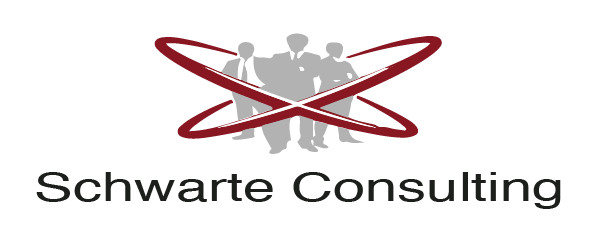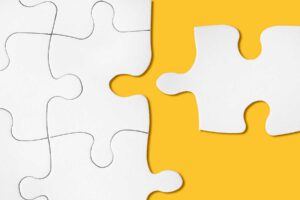A cookie is used to store your cookie preferences for this website. Skip to main content Skip to navigation Mast navigation Register Sign In Search our site All All Resources Articles Progression Step 2 - Year 1 to Year 3 . Modes of communication are adapted for different audiences, and to different disciplinary contexts. Faith groups and others representing childrens interests have helped teaching professionals to develop the code. The statements support and complement one another and together they contribute to realising the four purposes of the curriculum. The learner grows holistically in their understanding and purposeful use of languages, literacy and communication when listening and reading, when speaking and writing and when interacting and mediating in a wide range of contexts. functionality such as being able to log in to the website will not work if you do this. We've saved some files called cookies on your device. Contents. Learners should become increasingly independent in recognising and applying the underlying mathematical structures and ideas within a problem, in order to develop strategies to be able to solve them. stream Progression in health and well-being occurs across a wide range of skills, including: physical, emotional, psychological and social skills. Progression in this Area is a continuum of increasingly complex engagement with ideas and communicative purposes and of development of language awareness. Descriptions of learning provide guidance on how learners should progress within each statement of what matters as they journey through the continuum of learning. As learners experience, engage with, understand and apply increasingly complex ideas and language awareness, accuracy and fluency in using communication skills grow. The new curriculum framework features overarching topics in the form of: an Introduction; Summary of Legislation; Designing your Curriculum, and Supporting learner progression: Assessment. 4 0 obj Sf5a The concepts that learners are introduced to will become increasingly complex, and understanding the way in which concepts connect will contribute to a growing understanding of the ideas within this Area. Literacy, numeracy and digital competence will be taught to all throughout their schooling. Guidance to help schools and settings develop their own curriculum, enabling learners to develop towards the four purposes. You can change your cookie settings at any time. This incorporates geography, history, religion, values andethics, business studies and social sciences. These cookies are: We would also like to save some cookies to help: You have accepted additional cookies. Our cookies ensure you get the best experience on our website. The Government is taking forward its manifesto commitment to review the school year, through a national conversation, with opportunities for parents, students, education staff, private and public sector workers and employers to give their views. Learning will include skills and experiences, as well as knowledge. We use Progression means learners developing their confidence, motivation competence in a skill, developing increasing accuracy and proficiency. Healthy, confident individuals who . Pupils Working Below Progression Step 1 Progression Step 1 starts at the typical development level of a 3-year-old. a revised journey to curriculum roll-out section to reflect the fact that the curriculum is now being implemented, corrections to issues with definitions and hyperlinks, more clarity through minor amends to narrative following feedback, Introduction to Curriculum for Wales guidance, Curriculum for funded non-maintained nursery settings, Curriculum in Wales: Planning and priority guide, Consultations on additional Curriculum for Wales guidance, Education is changing: information for parents, carers and young people, improve our website by collecting and reporting information on how you use it. experiences and skills for careers and the workplace, learning about local, national and international contexts. Assessment will take place on a day to day basis to assess each individuals progress, agree next steps and monitor progress over time. The first teaching of all year groups from primary school to Year 7 will begin in September 2022 and the new curriculum will roll out year-on-year from this point. stream producing them when speaking and writing or through other means of communication. Understanding how learners progress is critical to learning and teaching and should inform curriculum design, classroom planning and assessment. These are: Progression Step 1 - age 3-5 Progression Step 2 - age 5-8 Progression Step 3 - age 8-11 Progression Step 4 - age 11-14 Progression Step 5 - age 14-16 Children can be anywhere on the progression line, though. This presents a unique opportunity to craft an education system, with learner progression at its heart, of which we can all be truly proud. By continuing to use this site, you agree to our use of cookies. file type: PPT, file size: 3 MB, Additional learning needs in the context of Curriculum for Wales 2022, , For younger learners the acquisition of language follows the same sequence as for older learners, although the speed at which it does so can vary considerably. You can change your cookie settings at any time. Advice and support will be given to learners choosing their options as they prepare for their future careers. Understanding linguistic concepts in the language of instruction, for example, can be applied to learning a new language, which facilitates progression in that language as well as improving understanding of the way in which their own languages work. The first phase of the project, funded by UWTSD and the Welsh Government, is concerned with the co-construction of evidence-based progression frameworks. Part of: Curriculum for Wales First published: 15 November 2021 Last updated: 15 November 2021 Documents Curriculum for Wales: Progression Code PDF 603 KB This file may not be accessible. There will be a new curriculum, made in Wales by teachers, partners, practitioners, and businesses and shaped by the best ideas from around the world. As outlined in Successful Futures: Progression Steps will be described at five points in the learning continuum, relating broadly to expectations at ages 5, 8, 11, 14 and 16. 2 0 obj endobj Building on the strengths of our strategic partnership, and working closely and collaboratively with the pioneer school network, the CAMAU project seeks to develop a shared understanding of progression in the context of Successful Futures. Enter your email address to follow this blog and receive notifications of new posts by email. They should apply logical reasoning about these relationships and be able to justify and prove them. Wales' new curriculum and assessment arrangements are built on progression in learning.Discover how learning will be planned and progress will be assessed: . Some descriptions of learning at these foundational progression steps are, therefore, duplicated across some statements of what matters, where directly relevant, to better support planning for learning progression. We've saved some files called cookies on your device. As learners experience increasingly complex concepts, they should also develop an understanding of the relationships between and within these concepts. These are demonstrated in: Drawing on a learner's whole linguistic repertoire however uneven that may be enables them to progress in all languages. We've saved some files called cookies on your device. The New Curriculum for Wales progression steps will be implemented in September 2022. file type: PPT, file size: 372 KB, , Watch our video outlining how learning will be planned and progress will be assessed (on YouTube, GCSEs will still exist but the qualifications your child studies from 14-16 will fit with the new curriculum, September 2022 Up to year 6 and some of year 7. Introduction. Progression Step 1 - Nursery to Reception . This is important to help them: spot any issues or extra support they need. It aims to support learning across the whole curriculum and to enable learners to gain knowledge and skills in Welsh, English and international languages as well as in literature. Recognising mathematical structure within a problem and formulating problems mathematically in order to be able to solve them relies on an understanding of the ideas and disciplines within areas of learning and experience alongside a depth of knowledge. to improve the website performance by capturing information such as browser and device HWB.GOV.WALES uses cookies which are essential for the site to work. The way children learn in primary schools will be different. The change includes a move to online Personalised Assessments from National Tests. Word documents with the 'Descriptions of Learning' for Progression Steps 1, 2 and 3 for all Areas of Learning in the new Curriculum for Wales 2022. In humanities for example a topic like climate change can be looked at holistically through geography, history and impact on society. The following interdependent proficiencies have been used in developing the descriptions of learning and are central to progression at each stage of mathematics learning. The way children learn in primary and secondary schools will be different. While Key Stages 2, 3 and 4 will disappear the principles of the Foundation Phase will remain the same but will become a part of one seamless curriculum for children aged 3 to 16 providing more joined up learning. Bringing to bear different knowledge, skills and understandings to explore how progression might best be described and developed in relation to the Areas of Learning and Experience (AoLEs), CAMAU has an important role in the creation of our new national curriculum. Principles of progression Descriptions of learning Designing your curriculum 1. The learner moves forward along the progression continuum partly through exposure to rich challenges and resources offered by other Areas. Learners thus acquire a gradually more nuanced understanding of different viewpoints and increasing command of the skills needed to interpret, evaluate, articulate and respond to differing perspectives. Curriculum for Wales: Progression Code The Code sets out the ways in which a curriculum must make provision for all learners. % Non-essential cookies are also used to tailor and improve services. They progress in the languages, literacy and communication set out in this Area alongside the development of disciplinary literacy in the other curriculum Areas. |$ Presentations and videos about the Curriculum and Areas of Learning and Experience. There is a new curriculum in Wales which will be mandatory from September 2022. The principles of the Foundation Phase will remain, but will become a part of one seamless curriculum for children aged 3 to 16, providing more joined-up learning. The six Areas of Learning and Experience are: For more information about each of the Areas of Learning and Experience. In this Area, languages are seen as a key to social cohesion, which can promote better local, national and global understanding. Children will be learning in Progression steps, which are rough guides for where children in certain age groups should be along the progression line. This means that different languages should be explored in relation to one another, so too the skills of listening, speaking, reading and writing. This incorporates biology, chemistry, physics,computer science anddesign and technology. <> Curriculum for Wales. Schools will progress with designing their curriculum based on the suite ofCurriculum Guidance. The Curriculum for Wales groups subjects into six Areas of Learning and Experience. responding to communications when listening, reading, or receiving language in other ways. UPDATE: Now each table includes a column on the right for your own tracking information. This intrinsic part of successful language learning leads to becoming more fluent and accurate language users. Learners will have varying proficiencies in their languages and, to ensure a robust foundation for second and subsequent languages, early steps (such as grapheme-phoneme correspondence) are revisited in each language. By continuing to use this site, you agree to our use of cookies. Progression can be considered through the identification of Progression Reference Points through which children will journey as they experience the curriculum. Second language or bilingual learners may not necessarily show the same pattern of linguistic progression as first language learners. Read details Part of: Curriculum for Wales First published: 22 February 2019 Last updated: 29 March 2019 Documents Preparing for the new curriculum PPT 3 MB UPDATE: Now includes LNF and DCF Steps 1, 2 and 3. This understanding can be deepened as learners are afforded opportunities to learn multiple languages. Curriculum for Wales Science and Technology Descriptions of learning AREA OF LEARNING AND EXPERIENCE Science and Technology Guidance to help schools and settings develop their own curriculum, enabling learners to develop towards the four purposes. Our national mission: high standards and aspirations for all, Understanding progression in the context, Curriculum Development Process what matters, Timelines made visual: Curriculum and Education Reform, Curriculum Implementation report shows progress with challenges, Adnodd the future of resources to support Curriculum for Wales, Welsh Government social media house rules (on GOV.WALES). pz Non-essential cookies are also used to tailor and improve services. An increasing breadth of knowledge is achieved through the learners being introduced to new mathematical concepts. Justifications and proof should become increasingly abstract, moving from verbal explanations, visual or concrete representations to abstract representations involving symbols and conventions. By continuing to use this site, you agree to our use of cookies. Background - Cross-curricular skills and the Frameworks Literacy, numeracy and digital competence are mandatory cross-curricular skills within the Curriculum for Wales Framework. Non-essential cookies are also used to tailor and improve services. Professor Dylan Jones and Dr Jane Waters, Yr Athrofa: Institute of Education, UWTSD. curriculum for wales four purposes new curriculum for wales progression steps rse curriculum framework of objectives halloween curriculum for wales display new curriculum for wales curriculum for wales progression steps progression steps wellbeing back to school all about me wales 4 purposes progression step 1 welsh curriculum what matters This linguistic knowledge and these skills are needed to participate confidently and empathetically in society, which contributes to developing learners as ethical, informed citizens of Wales and the world. file type: PPT, file size: 700 KB, , How an understanding of child development is applied to support progression for all learners. In the early years this will incorporateplay (problem solving,exploringideas, establishing connections and collaborating). HWB.GOV.WALES uses cookies which are essential for the site to work. used to prevent cross site request forgery. Guidance to help schools and settings develop their own curriculum, enabling learners to develop towards the four purposes. HWB.GOV.WALES uses cookies which are essential for the site to work. Practical support for curriculum development, quality assurance and self-evaluation, Introduces the four purposes, what's new, why it's changing and who the curriculum guidance is for, Explains the legal status of the curriculum guidance, the proposed legal duties on schools and what these mean in practice, General guidance for designing your curriculum across all areas of learning and experience, Guidance and information for designing assessment arrangements within a school curriculum, The purpose of this guidance is to support schools with a common set of expectations, priorities and supporting information for curriculum design, Our preparations for rolling out the Curriculum for Wales. A Parent Governor, pupils and parents talk about the changes at Pembroke Dock Community School. The other steps are: These can be considered as both longitudinal and cross-sectional. An understanding of how mathematical concepts underpin learning help learners make connections and transfer learning into new contexts.





